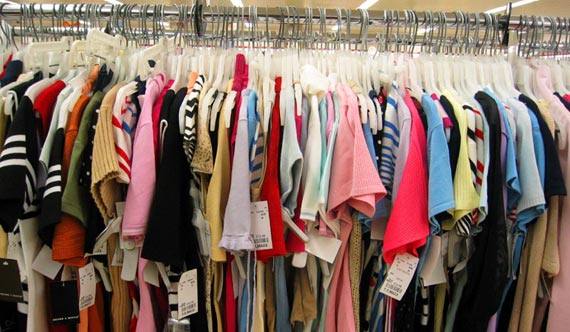
THE CLOTHING and textile industry had a slow start during the first quarter of the year, mainly due to poor retail performance over the last Christmas period and the continued influx of cheap textiles and clothing products from the Far East. OWN CORRESPONDENT
In an interview with Southern Eye Business, Zimbabwe Clothing Manufacturing Association (ZCMA) chairman Jeremy Youmans said the clothing industry suffered from the liquidity crunch.
“The industry had a slow start to the year, mainly due to poor retail performance over the last Christmas period and lack of commitment by retailers to the ensuing periods,” Youmans said.
“However, there has been investment into some companies and export orders have increased, so overall, we see the industry, at worst, having held its own, and probably a small increase with further increases for the rest of the year,” he added.
“The clothing industry suffers from the same constraints that most industries in Zimbabwe suffer from (for example) access to affordable finance, costly state of infrastructure, high cost of doing business, poor local demand, lack of import compliance of imported clothing at our borders, lack of raw materials available locally, lack of certain skills etcetera.
“But, as ZCMA, we are working with as many stakeholders and partners as we can to address as many issues as possible and to market ourselves to the people of Zimbabwe, and the rest of the world, as an industry that can supply a full range of clothing, of great value and quality.”
Youmans said they have lobbied the government not to increase import duties on clothing beyond common external tariff (CET) as that would encourage increase in smuggling.
CET is the single tariff rate agreed to by all members of a customs union on imports of a product from outside the union.
- Chamisa under fire over US$120K donation
- Mavhunga puts DeMbare into Chibuku quarterfinals
- Pension funds bet on Cabora Bassa oilfields
- Councils defy govt fire tender directive
Keep Reading
He said duties payable on clothing imported into Zimbabwe are set at the level of the CET for the Southern Africa Development Community (Sadc) Free Trade Area and they cannot be lowered without the agreement of the other member states.
“As an industry, we have always lobbied the government, and Zimbabwe Revenue Authority (Zimra), not to increase import duties on clothing beyond the CET, as we believe that would encourage an increase in smuggling,” Youmans said.
“Obviously, many other industries have increased import duties on their products via surtaxes, but clothing has not as we made it clear we did not want additional taxes on clothing. We work closely with Zimra on trying to improve the level of import control and compliance and will continue to do so,” he added.
“The current duties of 40% are not prohibitive as they are the CET for Sadc. Member states can raise their duty rates above the CET, for example South Africa raised their rate to 45%, but you can’t lower it without agreement.”
Youmans said they had raised queries with Zimra as to whether certain retailers were being charged the correct duties.
He said there appeared to be rampant abuse of under-invoicing, fraudulent certificates of origin and the use of runners, who bring goods across the border on behalf of clients at an all-in price which includes evasion of duties, to reduce the cost of imported goods.
He encouraged all retailers to buy more from the local manufacturers.
Youmans suggested that the CET level of duties, designed to level the playing field for regional manufacturers, should be lowered because retailers import large amounts of finished goods, rather than fully utilising the local manufacturing capacity, was illogical and inconsistent with other national policies.










